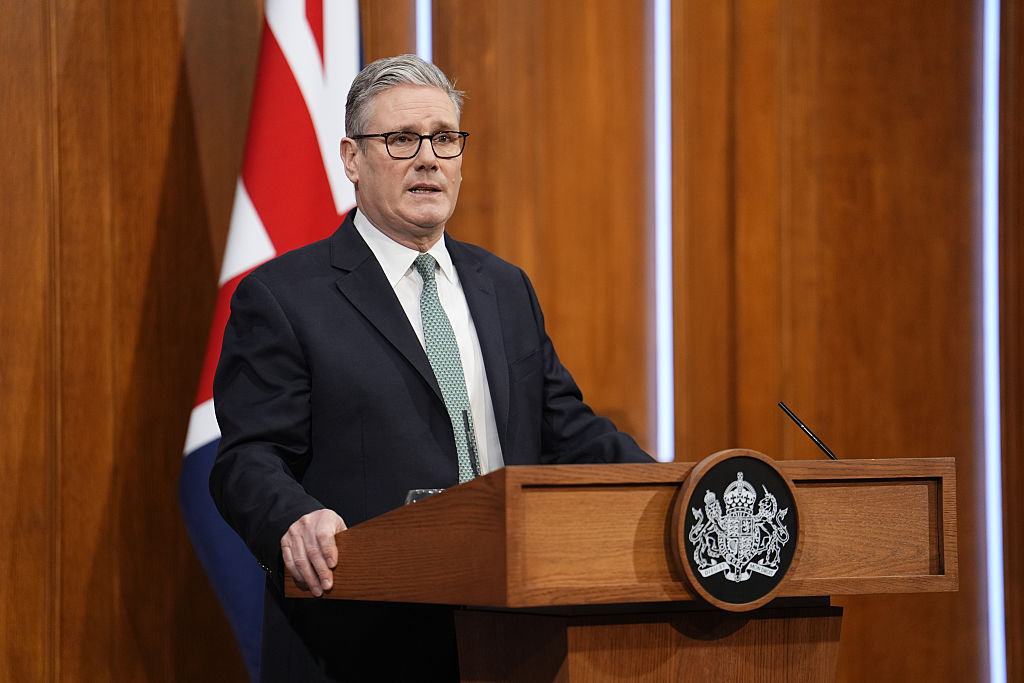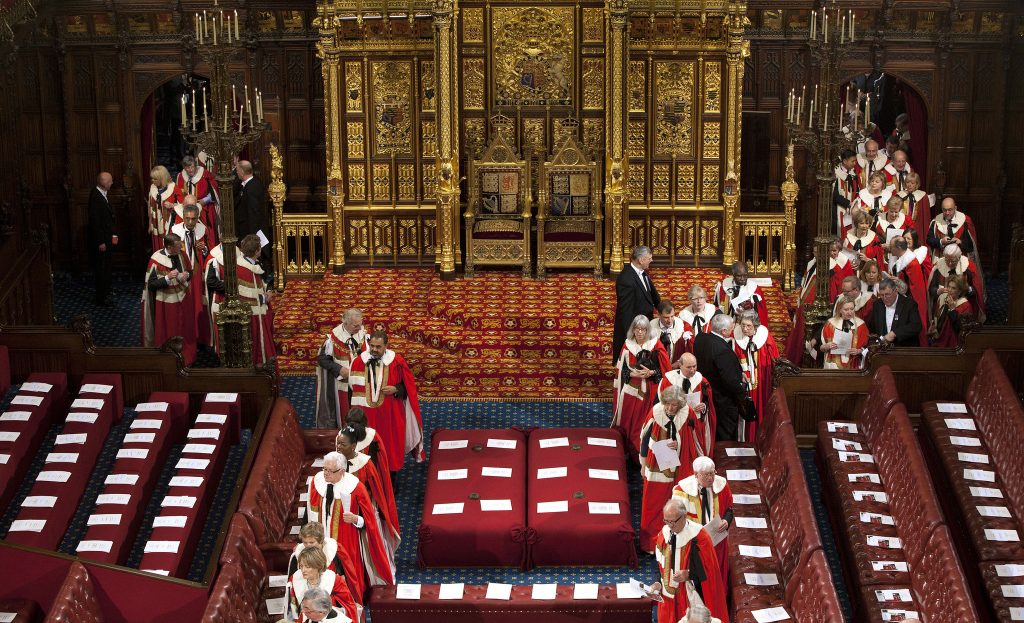Politics
Warning against “undemocratic” 10% recall threshold for Senedd Members

A 10% THRESHOLD for voters to remove Senedd members from office between elections would be undemocratic, the standards commissioner warned.
Douglas Bain, who investigates complaints against Senedd members, gave evidence to a standards committee inquiry looking into introducing a system of recall.
He said: “I very much welcome anything that will strengthen the ability of the public to call to account members of the Senedd. I think that should always be welcome.”
But Mr Bain warned that the closed-list electoral system, which will see people voting for parties rather than candidates from 2026, poses major difficulties.
He said: “If a member was recalled, the public – the electorate – would not have a choice of who might be elected, with the automatic election of the next person on the party list.”
He told the committee it would be “quite wrong” to replace a member in this way, without a byelection, “because only 10% of the electorate have said that’s what they want to happen”.
Stressing it’s a personal view, and ultimately a matter for the Welsh Parliament to decide, Mr Bain said: “I wouldn’t regard that as democratic or acceptable.”
He added: “There has to be some sort of mechanism to ensure actually it’s the will of not just 10% of the people that the member should be replaced, but it’s the majority of the people.”
Peredur Owen Griffiths, a Plaid Cymru member of the committee, pointed out that an MS could be elected with 40% of the vote yet removed with 10%.
Mr Bain suggested giving the standards committee powers to recommend disqualification could work as an alternative but this could be viewed as MSs marking their own homework.
Asked whether proxy and postal votes should be allowed as part of a recall mechanism, Mr Bain said the extra verification steps would unduly complicate the process.
Vikki Howells asked about Westminster’s criteria for triggering a recall petition: a prison sentence of less than 12 months, a ten-day suspension, or an expenses conviction.
Mr Bain, who was appointed in 2021, told the committee chair it is a good starting point.
The standards commissioner said there could be an argument for reducing the 12-month sentence threshold, above which members are automatically disqualified.
He asked: “Is it acceptable that someone who’s been sentenced to six months’ imprisonment … to remain a member of the Senedd? I think many would think the answer is ‘no’.”
Asked if members should be able to appeal, Mr Bain said in his experience of the complaints process, introducing an appeals mechanism risks prolonging the agony for everyone.
He recommended following Westminster’s model as closely as possible, adapting it for Wales as necessary: “Why try to reinvent a wheel that seems to work reasonably well?”
Mr Bain previously served as acting commissioner following Sir Roderick Evans’ resignation in 2019 after he was secretly recorded by Neil McEvoy, the former Plaid Cymru MS.
The commissioner, who is based in Northern Ireland, said a vote of the whole Senedd and a weighted majority should be required due to the serious nature of the recall decision.
“Otherwise it could be used by a party that had a greater number of seats in the Senedd simply to remove opposition, which would be wholly unacceptable,” he warned.
But Joe Rossiter, co-director of the Institute of Welsh Affairs, suggested a vote of the whole Senedd is unnecessary and risks politicisation, with members voting in party blocks.
Mr Rossiter, who joined the independent think tank and charity in 2022, described the members and elections bill as a missed opportunity to include a recall mechanism.
He told the meeting on June 3: “The public have a right to expect high standards from elected officials who are having an increasing impact on everyday life in Wales.”
Ms Howells asked whether politicians should be recalled for changing their allegiance, saying voters are often vexed and lack representation when an MS joins another party.
Mark Drakeford suggested members should be allowed to leave a political group but then only be able to sit as an independent for the rest of that Senedd term.
“They wouldn’t be able to hawk themselves around to different political groups,” he said.
The ex-first minister suggested it is unlikely the main parties will exhaust their 12-candidate lists for constituencies, saying: “You’d have to have a very, very substantial run of bad luck.”
Mr Drakeford said any independent MS would effectively be on a list of one but he argued it would be preferable for the seat to sit vacant rather than hold a by-election.
He told the meeting the unintended consequences of holding by-elections under the new fully proportional system outweigh the problems arising from a vacant seat.
Natasha Asghar, for the Conservatives, asked whether Wales should introduce a public body, similar to the Independent Parliamentary Standards Authority (Ipsa) in Westminster.
Mr Rossiter said an Ipsa-style approach could raise standards throughout the Senedd as an institution, not only among individual members, but it would require more investment.
international news
Mandelson quits Lords amid police probe over Epstein links

Peter Mandelson has announced he will retire from the House of Lords with immediate effect, as mounting political and legal pressure grows over claims he shared sensitive government information with convicted sex offender Jeffrey Epstein.
Parliamentary officials confirmed that Peter Mandelson formally notified the Clerk of the Parliaments of his decision, ending his membership of the upper chamber from Tuesday (Feb 4).
The move follows reports that the Metropolitan Police Service is reviewing allegations of possible misconduct in public office connected to emails said to have been forwarded to Epstein while Mandelson was business secretary during the 2008–09 financial crisis.
Downing Street has confirmed that material has been passed to police after an initial Cabinet Office review.
Government fury

Prime Minister Keir Starmer told cabinet colleagues Mandelson had “let his country down”, according to No 10, and officials are now drafting legislation that could strip him of his peerage entirely.


Removing a life peer is rare and would require an Act of Parliament.
If passed, Mandelson would lose the title “Lord” altogether — an extraordinary step that has only been considered in the most serious cases.
Senior ministers have described the alleged passing-on of market-sensitive government discussions as “disgraceful” and a “betrayal of trust”.
What police are examining
Misconduct in public office is a centuries-old common law offence that applies where someone in a position of public trust wilfully abuses that role. It carries a maximum sentence of life imprisonment.
Investigators will assess whether confidential information — particularly relating to government financial policy during the crash — was shared without justification and whether safeguards were breached.
At this stage, no charges have been brought.
Mandelson has previously apologised for maintaining contact with Epstein after the financier’s conviction, saying he regrets “ever having known him”, but he has disputed some of the latest claims and has not commented directly on the police review.
Political shockwaves
Opposition parties are pushing for further disclosure of documents relating to Mandelson’s vetting and his past roles.
Conservatives are expected to force a Commons vote demanding more information, while Liberal Democrats have called for a public inquiry.
Several MPs have also suggested Mandelson should be removed from the Privy Council.
The developments mark a dramatic fall for one of Labour’s most influential political figures of the past three decades, who only months ago was serving as the UK’s ambassador to Washington.
Now, with police examining evidence and legislation being prepared to remove his title, his public career appears effectively over.
More updates are expected as the investigation continues.
Community
Cilgerran Church in Wales school petition to be heard

A PETITION opposing proposed changes for a north Pembrokeshire school is to be heard by councillors later this week.
At last May’s meeting, Pembrokeshire County Council considered a report of the School Modernisation Working Group which outlined the findings of a review of education provision in the Preseli area.
A later July meeting backed a general consultation to discontinue Cilgerran Church in Wales Voluntary Controlled School, and to establish it as a 3-11 community school.
“In particular, the review considered the extent of surplus school places in the area, set against a significant decline in the pupil population,” the council in its consultation has said.
The consultation closed on January 30.
Hundreds have opposed the proposed changes, with a petition, on the council’s own website opposing the changes recently closing after gaining 391 signatures.
Any petition of more than 100 signatures triggers a debate at one of the council’s scrutiny committees, in the case of Cilgerran that debate taking place at Pembrokeshire County Council’s February 5 schools and learning overview and scrutiny committee.
The Cilgerran e-petition, created by Louise Williams, raised concerns including the school could become part of a federation, a loss of permanent head teacher on site, a shared head teacher would have to oversee several schools, loss of funding control and the ability to maintain the school’s current healthy and stable funding, and a loss of commitment to the church, in turn could impact on the school’s and pupils values, beliefs and cultural beliefs.
It said: “Ysgol Cilgerran VC school has strong links with the Church community in Cilgerran and we believe this will have a negative impact on the children who attend the school, the community of Cilgerran and the links between the two.
“We are proud of our school ethos and values which are strengthened by our links with the church. The school has close and strong relationships with our Church in Wales federation governors one of which is also our safeguarding governor.
“Our Church Federation governors work closely with the school and are regular visitors to the school and the children. They provide vital support and guidance to the school and have a positive impact on the Children’s education. We believe these links will be weakened by this proposal to remove our VC status and we believe this is an un-necessary action.”
The proposals for Cilgerran are part of a wide range of potential education changes in the county.
Two petitions, opposing the potential closures of Manorbier and Ysgol Clydau schools, were recently heard at full council and a further petition opposing the potential closure of Stepaside School has recently been launched, which has generated enough support to be heard at a future council meeting.
Crime
Welsh Lib Dems urge ministers to rethink rates relief for struggling pubs and cafés

Calls grow for Welsh Government to match support offered to English venues
THE WELSH LIBERAL DEMOCRATS have urged the Welsh Government to review its business rates policy, warning that scaling back support for pubs and hospitality risks further closures across towns and villages.
Party leader Jane Dodds, who represents Mid and West Wales in the Senedd Cymru, said ministers should act quickly to protect local venues after additional support for pubs and music venues was announced for England by the UK Government.
The measures announced by the Chancellor do not automatically apply in Wales, leaving uncertainty over whether similar help will be introduced here.
Hospitality businesses across Pembrokeshire and Carmarthenshire have already reported rising energy bills, higher wage costs and reduced footfall since the pandemic. From April, current business rates relief is expected to be reduced, a move the Liberal Democrats say could place Welsh firms at a disadvantage compared with competitors over the border.
Dodds said that pubs, cafés and restaurants form “the heart of our communities” and warned that withdrawing relief now would be “a serious mistake”.
She told the Senedd that support “cannot stop at pubs alone” and should extend to the wider hospitality sector, including restaurants and family venues that rely heavily on seasonal trade and tourism.
“When questioned, the First Minister said she needed to examine the details of the English package before committing to anything similar for Wales,” Dodds said. “Without urgent action, we risk losing viable, well-loved businesses that communities simply cannot afford to lose.”
The party is also calling for UK-wide action, including a temporary reduction in VAT for hospitality and tourism, funded by a windfall tax on large banks.
However, Welsh Government sources have previously argued that decisions on rates relief must be balanced against pressures on public finances, with ministers required to prioritise health, education and other frontline services within a fixed budget. They have said any additional support would need to be affordable and targeted.
Industry bodies have echoed concerns about the challenges facing the sector. Trade groups say many independent pubs and cafés continue to operate on tight margins, particularly in rural areas where they serve as community hubs as well as businesses.
Local operators say clarity is now key, with decisions on staffing, stock and opening hours often planned months in advance.
With the next financial year approaching, hospitality owners will be watching closely to see whether Wales mirrors England’s support – or leaves businesses to absorb the extra costs alone.
-

 Health5 days ago
Health5 days agoConsultation reveals lack of public trust in health board
-

 News6 days ago
News6 days agoCaldey still unsafe, survivors warn — despite Abbey’s reform claims
-

 Community6 days ago
Community6 days agoPembrokeshire students speak at national Holocaust Memorial Day event
-

 News6 hours ago
News6 hours agoPrincess of Wales visits historic Pembrokeshire woollen mill
-

 News6 days ago
News6 days agoKurtz raises Gumfreston flooding in the Senedd as petition deadline nears
-

 Crime4 days ago
Crime4 days agoPembroke man accused of child sex offences sent to Swansea Crown Court
-

 Community5 days ago
Community5 days agoCampaign to ‘save’ River Cleddau hits over 2,200 signatures
-

 Education6 days ago
Education6 days ago‘Vulnerable teen’ questioned by police at Milford Haven School































